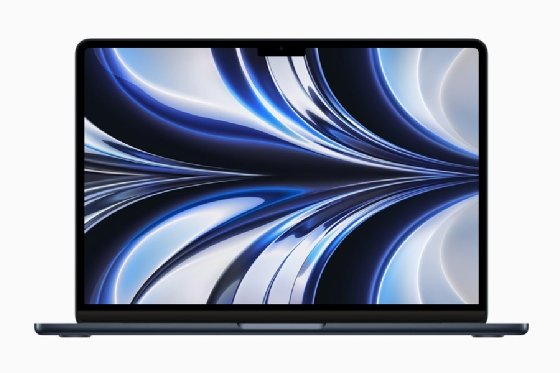
Getty Images
Apple Mac performance, features boost business appeal
The upcoming MacBook Air and Pro models will feature Apple's high-performing M2 chip, which will help workers in creative businesses edit videos and images faster.
Apple will power its upcoming laptops with the second generation of its custom-built processors, pushing higher performance as business adoption of Macs grows.
Next month, the company will debut its M2 chip in the MacBook Air and 13-inch MacBook Pro. At its Worldwide Developer Conference (WWDC) keynote Monday, Apple said the processor would accelerate the work of creative professionals.
According to Apple, the M2 has an 18% faster CPU, 50% higher memory bandwidth and a 35% more powerful GPU than its predecessor, the M1. M2 computers offer up to 24 GB of memory as well, up from the M1's 16 GB limit. The hardware improvements result in faster changes to large image files and speedier processing of high-resolution videos, Apple said.
Other Air features include a 13.6-inch display that is 25% brighter than before and a battery that lasts up to 18 hours. The laptop contains a 1080p webcam and four speakers. The hardware should improve sound and picture quality during video meetings, as the previous Air only had a 720p camera and stereo speakers. The M2 Air will cost $200 more than the last generation, launching at $1,200.
The Pro has a 13.3-inch screen and has a maximum 20-hour battery life. The base model of the M2 Pro has a $1,300 price tag.
"You now have, with the Pro 13-inch and the MacBook Air, the more affordable devices in [Apple's] lineup running on the new chipset," Carolina Milanesi, an analyst at Creative Strategies, said. "[The laptops have] the right price point for enterprise adoption."
While the Air and 13-inch Pro are the least expensive offerings in Apple's lineup, they still sell for a premium over other laptops. The average price for a business laptop in 2021 was $801, Gartner analyst Mikako Kitagawa said.

Macs have a foothold in the enterprise, and industry observers expect Apple to continue to gain ground. In 2021, 23% of laptops and desktops in U.S. enterprises ran MacOS, according to research firm IDC.
Employees want a choice of Mac or Windows PC. A January Creative Strategies survey of 1,163 U.S. workers found that 60% wanted the option to use Macs. The survey noted that employee satisfaction at companies that support Macs was higher, an important factor as many workers leave jobs in search of better working conditions.
Apple has made it easier for IT staff to manage its devices. Last year, the company launched Business Essentials to help small and medium-sized businesses update, track and onboard iPhones, iPads and Macs.
In addition to M2, Apple introduced a slate of improvements and features it plans to release in the fall for iOS, macOS and iPadOS. The changes include:
- An updated Messages instant-messaging app. Messages will let workers delete and edit messages and recover those they've deleted. If an employee wishes to respond to a message later, they can mark a thread as unread and return to it at a more convenient time.
- Improved multitasking controls on Macs and iPads. The upcoming Stage Manager feature lets workers switch easily between groups of windows. For example, employees could click from one task that requires chat and a word processor to another that needs a spreadsheet and email.
- Enhancements to the email client Mail. A delay in sending a message will give workers time to cancel a message before sending it. Also, people will be able to schedule emails and set reminders to respond to them. Email search will correct typos and look for synonyms of search terms.
- A digital whiteboard for iPads, Macs and iPhones. The app called FreeForm will let employees collaborate on a whiteboard in real time. Workers can draw using the Apple Pencil, add sticky notes and attach photos, videos, documents, and audio files to the board.
- Better password security in Safari. Apple will add a feature that lets employees use fingerprints or face recognition to create what the company calls a passkey for each website and app.
Mike Gleason is a reporter covering unified communications and collaboration tools. He previously covered communities in the MetroWest region of Massachusetts for the Milford Daily News, Walpole Times, Sharon Advocate and Medfield Press. He has also worked for newspapers in central Massachusetts and southwestern Vermont and served as a local editor for Patch. He can be found on Twitter at @MGleason_TT.







